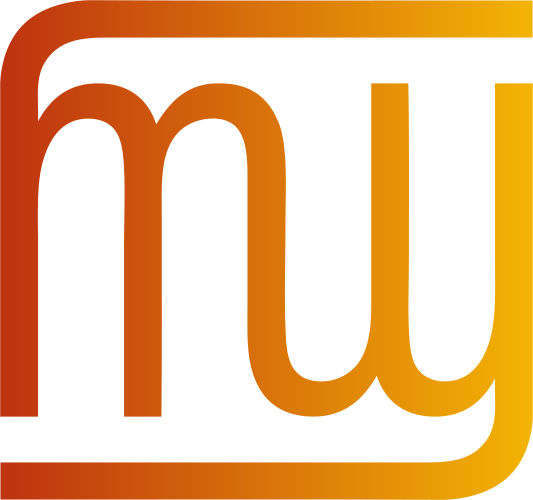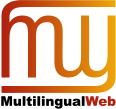
The W3C Internationalization (I18n) Activity works with W3C working groups and liaises with other organizations to make it possible to use Web technologies with different languages, scripts, and cultures. From this page you can find articles and other resources about Web internationalization, and information about the groups that make up the Activity. Read also about opportunities to participate and fund work via the new Sponsorship Program.
What the W3C Internationalization Activity does
Selected quick links
Selected quick links
Selected quick links
Last Call draft published for Encoding spec
A Last Call Working Draft of Encoding has been published.
While encodings have been defined to some extent, implementations have not always implemented them in the same way, have not always used the same labels, and often differ in dealing with undefined and former proprietary areas of encodings. This specification attempts to fill those gaps so that new implementations do not have to reverse engineer encoding implementations of the market leaders and existing implementations can converge.
The body of this spec is an exact copy of the WHATWG version as of the date of its publication, intended to provide a stable reference for other specifications. We are hoping for people to review the specification and send comments about any technical areas that need attention (see the Status section for details).
Please send comments by 1 July 2014.
Updates to two Working Group Notes published
Authoring HTML: Handling Right-to-left Scripts and Authoring HTML: Language declarations have both been updated to a new format that lists do’s and don’ts, but points to existing or new articles for detailed information. This will significantly help in keeping the material up to date in the future as technology changes. The documents have also been thoroughly overhauled to reflect the latest changes and information on
The first document provides advice to content authors using HTML markup and CSS style sheets about how to create pages for languages that use right-to-left scripts, such as Arabic, Hebrew, Persian, Thaana, Urdu, etc. It explains how to create content in right-to-left scripts that builds on but goes beyond the Unicode bidirectional algorithm, as well as how to prepare content for localization into right-to-left scripts.
The second helps content authors specify the language of content, which is useful for a wide number of applications, from linguistically-sensitive searching to applying language-specific display properties. In some cases the potential applications for language information are still waiting for implementations to catch up, whereas in others it is a necessity today. Adding markup for language information to content is something that can and should be done now and as content is first developed. If not, it will be much more difficult to take advantage of any future developments.
One more week to FEISGILTT – learn about and contribute to the future of Web and localization standards!
On 4 June and as part of the Localization World conference in Dublin, the FEISGILTT event will again provide an opportunity to discuss latest developments around localization and multilingual Web technologies. The event is sponsored by the LIDER project.
Highlights include updates about ITS 2.0 and XLIFF 2.0, and a session about usage scenarios for linguistic linked data in localization. Speakers include Kevin O’Donnell (Microsoft), Bryan Schnabel (Tektronix), Yves Savourel (Enlaso) and many more.
Register now to meet the key players around standards that will influence today’s and future business.
New version of Unicode Ideographic Variation Database released
The Unicode Consortium is pleased to announce the release of version 2014-05-16 of the Unicode Ideographic Variation Database (IVD). This release registers the new Moji_Joho collection, along with the first 10,710 sequences in that collection, 9,685 of which are shared by the registered Hanyo-Denshi collection. Details can be found at http://www.unicode.org/ivd/.
Slides for the MultilingualWeb and LIDER workshops available

The slides from the MultilingualWeb workshop (including several posters) and the LIDER roadmapping workshop are now available for download. Additional material (videos of the presentations, a workshop report and more) will follow in the next weeks – stay tuned.
MultilingualWeb workshop 7-8 May – follow via live stream!

The MultilingualWeb workshop on 7-8 May will be streamed live! Follow the event online if you cannot make it to Madrid. For details about speakers and presentations see the workshop program. The workshop is supported by the LIDER project and sponsored by Verisign and Lionbridge.
Program published for W3C MultilingualWeb Workshop in Madrid, 7-8 May

See the program. The keynote speaker will be Alolita Sharma, Director of Language Engineering from the Wikimedia Foundation. She is followed by a strong line up in sessions entitled Developers, Creators, Localizers, Machines, and Users, including speakers from Microsoft, Wikimedia Foundation, the UN FAO, W3C, Yandex, SDL, Lionbridge, Asia Pacific TLD, Verisign, DFKI, and many more. On the afternoon of the second day we will hold Open Space breakout discussions. Abstracts and details about an additional poster session will be provided shortly.
The program will also feature an LD4LT event on May 8-9, focusing on text analytics and the usefulness of Wikipedia and Dbpedia for multiilngual text and content analytics, and on language resources and aspects of converting selected types of language resources into RDF.
Participation in both events is free. See the Call for Participation for details about how to register for the MultilingualWeb workshop. The LD4LT event requires a separate registration and you have the opportunity to submit position statements about language resources and RDF.
If you haven’t registered yet, note that space is limited, so please be sure to register soon to ensure that you get a place.
The MultilingualWeb workshops, funded by the European Commission and coordinated by the W3C, look at best practices and standards related to all aspects of creating, localizing and deploying the multilingual Web. The workshops are successful because they attract a wide range of participants, from fields such as localization, language technology, browser development, content authoring and tool development, etc., to create a holistic view of the interoperability needs of the multilingual Web.
We look forward to seeing you in Madrid!
Registration for Workshop on Linked Data, Language Technologies and Multilingual Content Analytics now open!

Register now for the recently announced workshop on Linked Data, Language Technologies and Multilingual Content Analytics (8-9 May, Madrid). A preliminary agenda has been created and the registration form is available.
If you are interested in contributing a position statement please indicate this in the dedicated field in the registration form. The workshop organizers will come back to you with questions to answer in the position statement. We then will select which statements are appropriate for presentations on 9 May, and inform you by 28 April.
We are looking forward to see you in Madrid, both for this event and the MultilingualWeb workshop!
Updated article: Declaring character encodings in CSS
This update brings the article in line with recent developments in CSS, and reorganizes the material so that readers can find information more quickly. This led to the article being almost completely rewritten.
The article addresses the question: How do I declare the character encoding of a CSS style sheet?
German, Greek, Spanish, Hebrew, Hungarian, Brazilian Portuguese, Russian, Swedish, Ukrainian and Vietnamese translators are asked to update their translation of this article within the next month, otherwise the translations will be removed per the translation policy, since the changes are substantive.
Updated article: Choosing & applying a character encoding
This update brings the article in line with recent developments in HTML5, and reorganizes the material so that readers can find information more quickly. This led to the article being almost completely rewritten.
The article addresses the question: Which character encoding should I use for my content, and how do I apply it to my content?
German, Spanish, Brazilian Portuguese, Russian, Swedish and Ukrainian translators are asked to update their translation of this article within the next month, otherwise the translations will be removed per the translation policy, since the changes are substantive.
W3C® liability, trademark and permissive license rules apply.
Questions or comments? ishida@w3.org